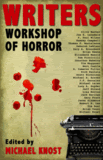 Woodland Press / August 2009
Woodland Press / August 2009
Reviewed by: Rich Ristow
Books on writing generally fall into two categories: inspirational or practical. Unfortunately, a lot of what’s available falls into the “inspirational” camp – short on real advice, but heavy on the “Yes, You can do it!” fuzzy-wuzzies. They have the feel and tenor of self-help books like: Yes, You Can Thwart Crippling Depression! or How To Come Out of a Shame Spiral Without A Case of the Dizzies! or It Doesn’t Matter What You Do, Just Do It With Exclamation Points!
Sarcasm aside, some people need inspiration to write. Besides, it’s not my aim to demean all self-help writers. The more well-written of those guides do serve a purpose. Obviously, book sales speak volumes, and there is a dedicated market for that genre. When it comes to writing, however, it strikes this reviewer as sad that people would dole out money for flaccid, vapid inspiration. Don’t these people have teachers, relatives, friends, or loved ones? Not even the blind love of a dog, or the skeptical affection of a cat? Self-help books, at their worst, most poorly written, come off as a cynical attempt to profit off the emotionally needy. Aspiring writers need the hard truth: publishing is a cold place, one where a prospective editor probably doesn’t give a rat’s ass about your feelings. That prospective editor likely has a hundred other crappy things to read in their slush pile. So, Chicken Soup for the Writer’s Soul may make one feel all squishy inside, but it’s not going to give practical guidance in how to write better stories.
Sure, I’ve painted a bit of an extreme here, but I’ve discovered how valuable real how-to books are. Michael Knost’s Writers Workshop of Horror is one of those real how-to books – just like Gerald Stern’s Making Shapely Fiction or David Madden’s Revising Fiction. While those two focus on fiction in general, Knost’s book offers what the title suggests: a specific discussion of how to write horror. Knost has amassed an impressive cast of contributors to do just that.
Writers Workshop of Horror functions as a platform for proven horror writers with lengthy bibliographies. Each, in their own way, tackles a certain compositional issue, quite often through the lens of their own work and creative process. J.F. Gonzalez, for example, relates how, on a recent collaboration, he was charged with writing the end of a novella. From there, he moves into a discussion about how many horror writers create the end of their story and work backwards, figuring how their characters may have come to their tragic ends. Gary Braunbeck sifts through issues of emotion, relating the act of writing to the craft of acting. One could go on, naming contributors like Clive Barker, Joe R. Lansdale, Michael Arnzen, Ramsey Campbell, and many more. One could try and rate each individual contribution, but for a reviewer that would be inherently foolish.
Educational jargon has a term: learning style. Everybody has one, and it’s unique to their personality, upbringing, and worldview. People learn differently by different methods, so one’s way of acquiring knowledge and understanding may not work for others. In short, Rick Hautala’s, F. Paul Wilson’s, or anybody’s practical advice will speak to some people more than others. This is natural and to be expected. However, there is something in the Writers Workshop of Horror for everybody.
Will this book make you a better writer? Absolutely not. Brian Keene, both in Writers Workshop of Horror, and across the Internet, has long maintained that the only thing that makes writers better is...wait for it...writing. It comes down to something he has described as, to paraphrase: “Ass in chair, fingers on keys.” And he’s correct. A writer can have all the greatest tools and blueprints handed to him and still turn out bad fiction. Improving one’s writing comes with experience; the old adage is: the more you put words onto paper or a computer screen, the better you get. Sure, there are other factors involved, like reader response and constructive criticism. Experience just works that way. However, when your ass is in the chair, and your fingers are on the keys, it doesn’t hurt to have few good manuals and resources a reach away. Writers Workshop of Horror is destined to be one of those invaluable resources.
Purchase Writers Workshop of Horror, edited by Michael Knost.